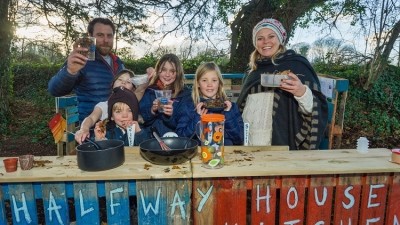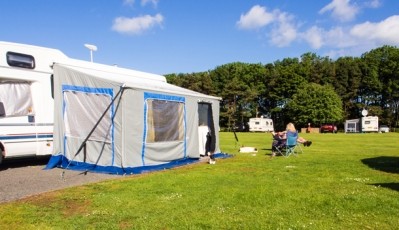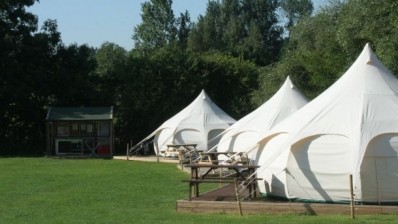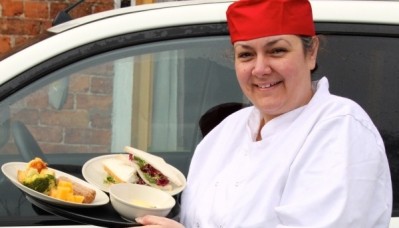Business Booster: Setting up a pub campsite
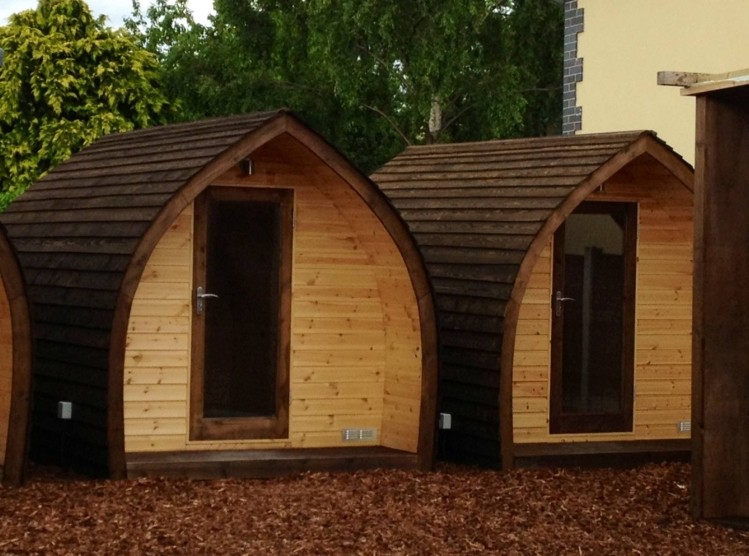
Why set up a pub campsite?
The ‘staycation’ market has grown hugely in recent years as people seek to keep costs down by holidaying in the UK. The camping, caravanning and ‘glamping’ (glamorous camping) sector accounts for more holiday bed nights in the UK than hotels – and for more holiday trips (over 16 million) than to Spain and Greece combined.
Glamping has risen along with festivals like Glastonbury as celebs get in on the act.
Many business owners, such as farmers and publicans, are tapping into the market by using part of their land to set up a campsite as the interest in niche sites rises. Campsites or glamping sites are easy to set up, easy to bring bookings to all year round, and can generate tens of thousands of pounds’ worth of extra income for businesses.
Pitchup.com has 29pub campsites among its listings, which generated £303,000 of bookings for the pubs in 2014, an average of £10,448 per pub just in bookings and before any increased bar trade.
Customers are looking for tent pitches, pitches for caravans and motorhomes or glamping options including ‘rent a tent’ and camping pods, which can be sourced, delivered and set up in days.
Customers also want to know where local pubs are when they’re on holiday, showing how essential these are to the domestic holiday market. Pitchup.com partnered with the Good Pub Guide in 2009 to show its pubs’ proximity to any of their campsites.
Pub sites are in prime position to bring in extra money not just with pitch prices but with increased bar custom and pub events, says Yates. (Around half of Pitchup.com bookings are for adults.)
‘The £303,000 figure above only relates to booking value and not increased bar intake,’ Yates says. ‘Pubs can also take advantage of external events where people look for campsites to keep down holiday costs, such as 2014’s Grand Départ from Yorkshire and 2015’s Rugby World Cup in England and Wales – and they will already have the staff on site.’
Additionally, pubs are generally open all year, so can take bookings for periods when 80% of campsites are closed. And withat least £3.5 billion to be invested in rural development until 2020 via the Rural Development Fund for England, potential help is available for rural businesses to develop.
‘In most cases the pub owner already owns the land,’ Pitchup.com owner Dan Yates said. ‘Why not put it to good use?’
The online boom
There were over 14,000 searches on the site for pub campsites on Pitchup.com in 2014, and over 70% of domestic holiday bookings are now made online. Customers now expect accommodation providers to have a website and they want to be able to book then and there, Yates says.
The rise of festivals, including family, literary, food and drink festivals as well as music ones, has led to a greater number of people considering camping for the first time. Pitchup.com has over 700 festivals in its database where customers can search for camping accommodation near an event where local hotels are likely to be full or to have inflated prices – again, they expect to be able to search for this online.
More people are using tablets and smartphones to go online: handheld devices accounted for 42% of Pitchup.com sales in 2014, up from 29% the previous year.
Finally, customers are booking more last-minute and more short stays, mostly booking one, two or three nights (the average is three nights) and within 28 days of arrival. Any business that’s online and available for bookings at all times will be cashing in on accommodation – and accommodation searches – in its local area.
What’s it worth?
A rural campsite in Somerset took £150,000 worth of bookings over the year just from its site listing.
Basic tent pitches without electric hook-up are usually priced from around £10 – 15 per night per pitch (most sites charge extra for pitches accommodating several people). Many sites charge extra for additions like dogs, ‘pup’ (mini) tents or water hook-up.
Pitches with electric hook-up and for motorhomes, campervans ortouring caravans can cost anything from £10 – 30, again with possible additional extras like awnings, gazebos or car parking by pitch.
Glamping pitches can start from £30 for pods, but on average tend to be closer to £60 – 100+ a night for ayurt, tipi, wigwam, camping pod, static caravan, lodge, refurbished gypsy caravan or shepherd’s huts. Extras can include additional guests, and, as with tent and caravan pitches, site owners often also charge for fire pit hire, firewood sale, meals, hampers, bed linen hire or packed lunches.
Many sites, particularlyfarm campsites, run courses or workshops, offer massage or reiki, or offer experiences like animal petting or pizza nights.
‘Pub campsites have lots of options to generate additional camping guest income,’ Yates says.
‘VisitEngland statistics for the camping and caravanning sector show that the total tourism spend including accommodation per visitor per night was £36 in 2013 - customers obviously spend on more than just their accommodation.
‘Pubs could, for example, offer special romantic meals, live music, beer tasting nights or even weddings. Or, if they have static accommodation like yurts or tipis, they could arrange with a local practitioner to offer massage or pampering appointments in the accommodation. This will help another local business and help boost a rural economy at the same time.
‘Or could also specialise in a particular kind of clientele, like The Victoria Bikers Pub in Coalville, meaning they’ll get bookings from all over the country and further afield as more customers hear about their site.’
What type of accommodation?
At its most basic, a pub campsite can offer small pitches for tents or campervans, without electric hook-up or showers. With a bit more room, bigger pitches and ones for larger motorhomes and touring caravans can be offered, alongside a shower/toilet block and other amenities.
But even a small area of land can be used for tipis, yurts, camping pods or other popular types of glamping accommodation. Tents are the easiest type of camping accommodation to get planning permission for, and for shorter-term campsites planning permission is not needed.
With the boom in the camping and glamping sector over the past few years, several companies have set up to build, deliver and construct camping pods, camping cabins, yurts etc. on site: searching online for ‘buy camping pod’ or ‘buy yurt’ will bring up plenty of hits for a range of budgets and services.
What is a typical campsite booking?
‘We get plenty of bookings for a week or a fortnight, for example at holiday parks or during school holidays,’ Yates says, ‘but generally our most frequent bookings are for one to three nights, booked around 30 days in advance. Over half of these are now booked on a tablet or smartphone, and 44% of all bookings were made by customers aged between 35 and 54.
One concern new campsite owners often have is how to get the customers they want, he adds, for example adults only or no stag or hen parties.
‘When new sites list on Pitchup.com, they can specify what sort of campsite it is, such as family-friendly, adults only, motorcycle friendly or student groups accepted. If they don’t tick the box on their listing for a particular group, such as ‘stag parties welcome’, then their listing won’t come up on searches for that group. Our customers find this is an effective way of ensuring they only get the customers they want.’
The most common season for campsites is from around mid-March to the October half-term, with some opening only in summer using the ’28 day rule’ (see ‘Will I need planning permission?’ below). One in five Pitchup.com listings are open all year round.
How to get started
Will I need planning permission?
Rules will obviously vary depending on which type of campsite a pub owner wants to set up, but planning permission isn’t always necessary.
With ‘28 day campsites’, land can be used as a campsite under the ‘permitted development’ rule, allowing land to be used without planning permission ‘for any purpose for not more than 28 days in total in any calendar year’. This is a handy option for business owners who want to set up a campsite for an event like the Grand Départ or as overflow from a nearby festival.
This exception only applies to tents, so for pub owners who want to allow caravan pitches or set up camping pods, tipis or other static accommodation, planning permission will be required.
If setting up for more than 42 days and/or for non-tent camping, site owners will also need a site licence. The licence is required if the land:
- will be used for tent camping (including trailer tents) on more than 42 consecutive days at a time or more than 60 days in 12 consecutive months
- if the land is to be used for caravans for human habitation – this applies to static caravans, touring caravans and motorhomes.
The granted licence may contain conditions on the health and safety requirements of the site, refuse disposal, number/type of units permissible at the same time and other factors.
Sites with more than one type of accommodation, such as pitches for motorhomes as well as tents, will normally be licensed as a single site.
‘Anyone setting up a new campsite should also bear in mind that the rateable value of the land may increase,’ says Yates. ‘Health and safety responsibilities may also be extended as the campsite grows, such as provision of ablutions or the safety of the land.’
Read more about setting up a campsite and planning permission here.
What else do I need?
‘A very few sites with only non-electric tent pitches have no toilets and use a compost toilet system instead,’ Yates says. ‘While sites can legitimately offer this as an authentic ‘wild camping’ experience popular with many of our customers, these days most campers do expect toilets and showers on site.’
Other amenities could include a covered washing-up area, water taps, a chemical disposal point and a communal fridge or kitchen. A launderette is often offered on larger sites, but if there’s no room/facilities to set one up, laundering could be offered to customers as an extra.
A lockable shed for bicycles or wet weather gear is the type of small free extra campers appreciate.
How to get bookings
Obviously the more pitches/accommodation a campsite is able to offer, the more income it can bring in. Offering accommodation all year round, or extra accommodation during a busy time like a sporting event, will also bring in bookings, as will advertising a pub campsite on niche websites, such as festival listings or biker forum sites.
But new campsite listings must also be web – and especially SEO (search engine optimisation) – savvy, with the right keywords to show up on search engine listings. They’ll also need excellent photos and information on what to do in the local area (for customer information and again to help rank higher on search engines).
They should be clearly written with all the site information a customer will need (or the customer might go elsewhere), and ensure that customers have access to excellent service before, during and after their booking.
Examples of pub campsites
- The Cross Inn, Warwickshire
- The Bull’s Head, East Sussex
- The King’s Head, Shropshire
- Providence Inn, North Yorkshire
Setting up a pub campsite – checklist
- Decide if the site will be open under the 28 day rule or for longer
- Apply for planning permission/licence if the latter
- Apply for any available grants
- Source/buy camping pods, yurts etc if offering glamping
- Install/renovate building/s to include showers, toilets, washing-up sinks etc
- Install electric hook-ups and water taps if offering them on site
- Take photos
Upload photos, add brief text, go live on site, take bookings
Opening the land around your pub to the camping and caravanning market is easy, and gives endless opportunities to bring in extra money as well as the pitch fees.
Offer breakfast, lunch and dinner, add extras, and make the pub a place where customers on holiday will want to drink every night.
Custom on tap?
